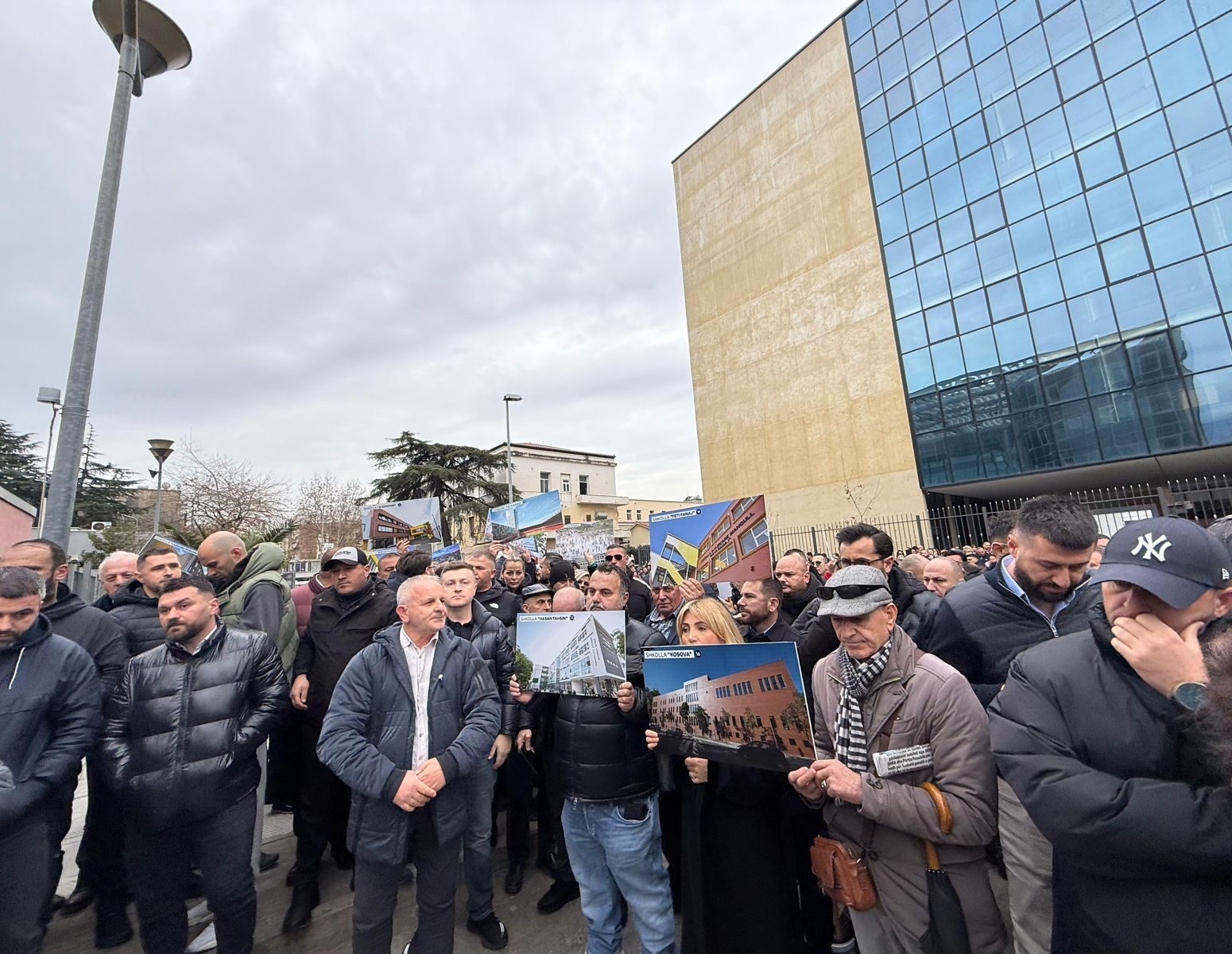Public reacts to Veliaj’s arrest: protests, online mobilization and political divide

Tirana has seen a wave of public reactions following the arrest of Mayor Erion Veliaj, with both vocal support and visible celebrations from his political opponents. While the Democratic Party (DP) has openly welcomed Veliaj’s detention as a victory in its long-standing accusations against him, large crowds gathered to support the Mayor in front of the Special Court, and others have taken to social media to denounce what they perceive as a politically motivated arrest.
Why is this important: Public reaction to Veliaj’s arrest signals a shift in the attitude of many Albanian to the new justice institutions that until now had enjoyed very broad public support. While a very significant majority supports SPAK in its effort to ensure accountability and combat corruption in high levels, a growing segment of the public believes it is selectively targeting Socialist officials while not showing the same zeal towards DP. The scale of the protests and online campaigns in support of Veliaj suggests that his arrest is not just a legal matter but a political flashpoint that could reshape the relationship of a significant part of the with the justice institutions.
Context: Veliaj was detained by SPAK on February 10 on charges of passive corruption and money laundering. The case centers on alleged financial transactions related to a cultural foundation and a property in Qerret linked to his in-laws. His arrest came as a shock to many, as he was seen as the Socialist Party’s most prominent rising star, widely expected to succeed Prime Minister Edi Rama. While opposition figures have praised SPAK’s actions, Veliaj’s supporters argue that the case lacks substantial evidence and is part of a broader effort to politically weaken the Socialist Party ahead of the May 11 elections.
The Socialist Party’s grassroots base has also reacted strongly, with many supporters questioning why SPAK appears to be disproportionately targeting Socialist officials while longstanding scandals linked to DP figures—such as the January 21 killings or the Gërdec explosion where 26 people were killed —remain unresolved. The arrest of the three-time mayor, credited with modernizing Tirana and turning it into a thriving tourism hub, has intensified suspicions among Socialists that elements within the justice system remain loyal to former DP leader Sali Berisha. For years, Socialist Party members refrained from openly criticizing the judiciary, but Veliaj’s case has shattered that restraint, unleashing widespread frustration.
Public mobilization: Large crowds gathered outside the Special Court Against Corruption and Organized Crime (GJKKO) following Veliaj’s arrest. Many protesters carried banners calling for his release, denouncing what they called a politically motivated attack. The peaceful demonstrations saw citizens chanting in support of the mayor and against what they perceive as a judiciary acting under political influence.
Helena Kadare, the wife of world-renowned writer Ismail Kadare, made a rare public appearance at the courthouse, voicing her solidarity with Veliaj and his wife, Ajola Xoxa. Her presence was seen as a significant endorsement, given her status as one of Albania’s most respected intellectuals.
Alongside street protests, a growing online movement has emerged under the hashtag #Melalin – Lali, meaning uncle or brother in southern dialect, being the mayor’s public nickname – which has quickly trended across Albanian social media. Supporters started flooding platforms with images of Veliaj’s tenure, highlighting his role in transforming Tirana into a modern European city. Posts showcasing infrastructure projects such as parks, public squares, pedestrian zones, and bicycle lanes have dominated online discussions, painting a picture of a mayor who reshaped the capital. Citizens have also shared personal stories of Veliaj’s grassroots engagement, from community cleanup initiatives to youth activism.
Socialist backlash: Beyond the anger at Veliaj’s arrest, the reaction also reflects a deeper frustration among Socialist Party supporters regarding what they see as a biased judicial system. For decades, there has been a perception within the party that key justice institutions are controlled or at least influenced by figures who owe their careers to Berisha and his party. While SPAK has aggressively pursued cases involving Socialist officials, critics argue that cases such as the January 21 killings—where four unarmed protesters were shot dead by the National Guard under Berisha’s government—or the Gerdec arms depot explosion that killed 26 people and in which Berisha’s son is alleged to have been involved – have not seen similar urgency in prosecution with SPAK even refusing to pursue January 21 until forced to do so by a ECHR and an Albanian Constitutional Court ruling.
Until now, Socialist Party members had largely avoided publicly challenging the judiciary, as party discipline dictated support for the justice reform and silence on any specific cases or grievances. However, Veliaj’s arrest has sparked a shift of attitude at all levels of the party, from the prime minister to ordinary rank and file, breaking a long-standing taboo within the party. Prominent Socialist figures have begun voicing grievances, arguing that SPAK’s actions risk undermining faith in the judiciary rather than strengthening it.
What’s next: As the legal proceedings continue, the public response to Veliaj’s arrest will likely play a significant role in shaping the political climate ahead of the elections. If the protests grow in scale, they could force a broader debate about the role and independence of SPAK.


